Curriculum
Six Core Areas Reinforced Over Four Years
Originally spanning the final two years of high school and the two years thereafter, and offering experiential learning through wilderness excursions and skills-based workshops, REACH sought to equip students with intellectual, emotional, and physical tools for a successful transition to adulthood.
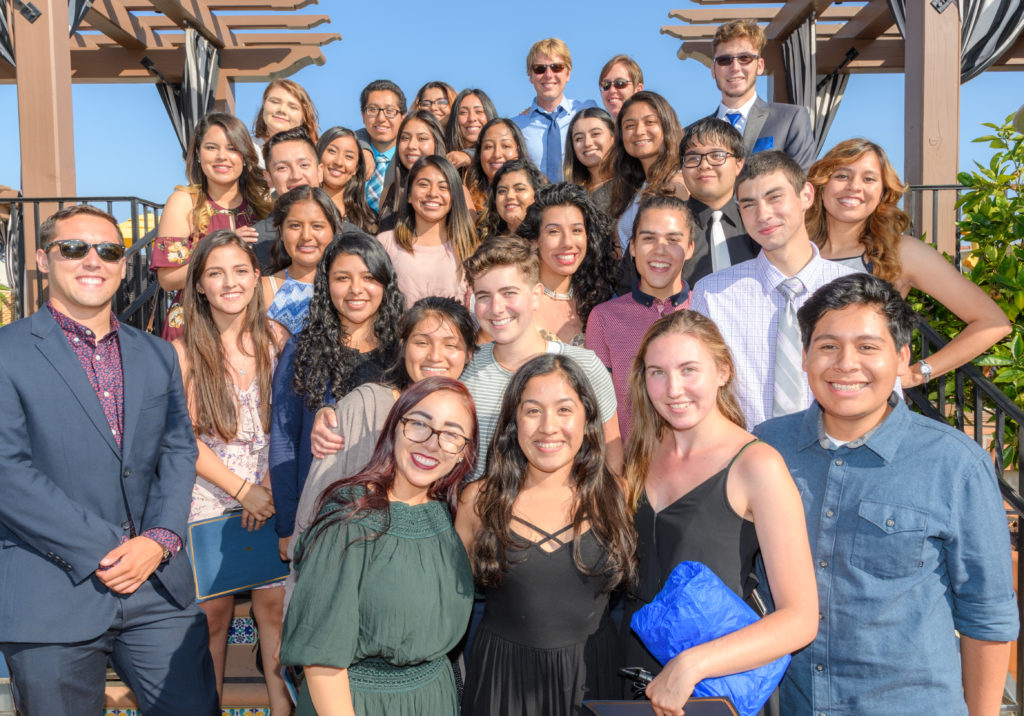
Challenge
KEY SKILLS MAY GO UNTAUGHT AT SCHOOL OR AT HOME
However well qualified, students from low-income families are disproportionately unlikely to enroll in college and, when enrolled, face more hurdles than their peers en route to graduation. Many lack or miss opportunities to acquire a range of skills essential for the transition to adulthood – from healthful habits to project planning to financial literacy. First generation students also tend to lack a support network of experienced mentors to guide them through the early stages of higher education.
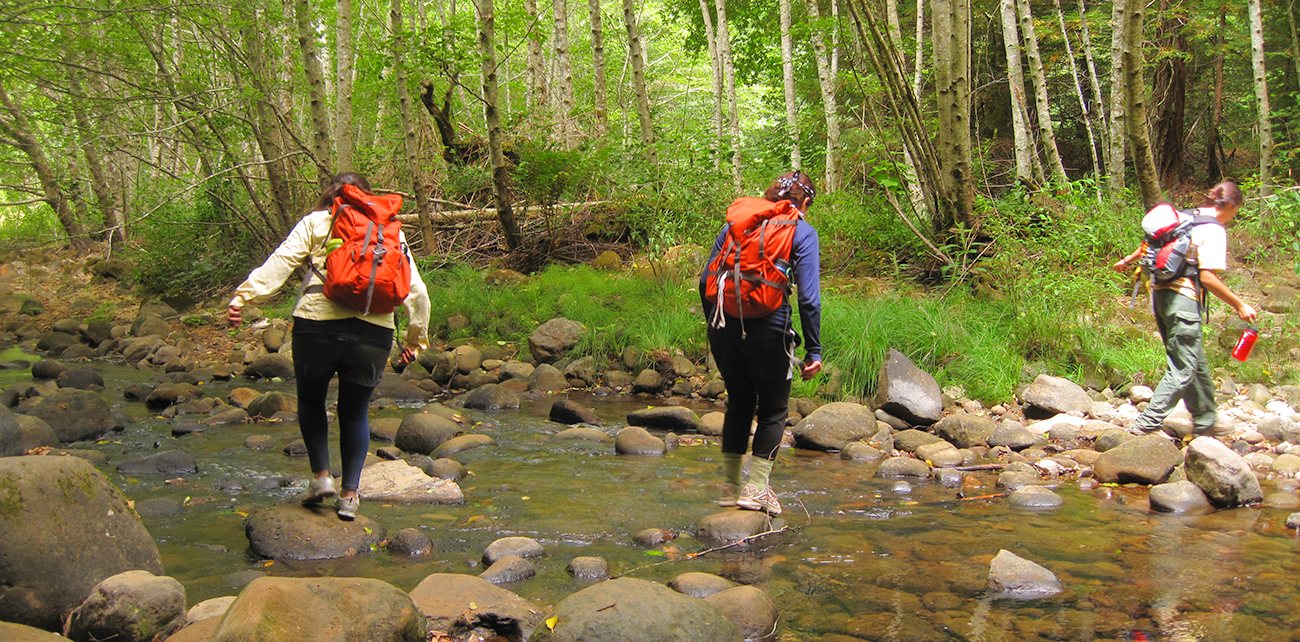
APPROACH
A LONG-TERM COMMITMENT TO CORE COMPETENCIES
For its first two cohorts, REACH designed a primarily non-academic curriculum to help students master the transition to adulthood and thrive in post-secondary education. During the first two years of the program, the six focus areas described below were the subject of frequent student excursions and workshops, dedicated to improving SAT scores, discovering career options, mastering the application and enrollment process, creating a plan to fund college, and visiting college campuses to get a taste for what the future could hold.
In years three and four, when students left the immediate area for post-secondary education, the program continued through virtual gatherings and 1-1 video meetings. REACH staff developed close mentoring relationships throughout the four-year program to reinforce positive behaviors developed in these core areas.
REACH focused on six core goals for building confidence and ability:
Post-Secondary Education – The program provided resources and support for students in their pursuit of higher education, and built enthusiasm for that pursuit. This included SAT and financial aid workshops, college tours, and career exploration. Third-party surveys showed that 100% of our students had confidence applying for college.
Outdoor Experiences – Weeks in the wilderness with peers, climbing a rock-face or a mountain or living in harsh conditions in Andean villages, helped students develop self-confidence, team building, and communication skills. Full participants in the planning and execution of each excursion, students practiced leadership, discovered hidden strengths, learned to feel confident in the natural world, became more environmentally aware, and developed group unity. 90% of students reported feeling more comfortable in nature, and 100% reported improvement working with others who held differing opinions.
Health and Wellness – Young people struggling with obesity or diabetes or other lifestyle-related chronic illnesses also struggle in college and beyond. REACH wove food literacy, hydration, and exercise knowledge and practices into every excursion and workshop, ensuring that students could take control and responsibility for their own health.
Financial Literacy – Most Americans are financially illiterate, and it shows in our low savings and high debt levels, as well as the intense stress levels that accompany financial insecurity. This can be especially challenging for first generation college students from low-income families. REACH provided skills and knowledge rarely taught at home or school, including how credit, compound interest, and personal budgeting discipline influence one’s future. Early mistakes can haunt a student for decades, so financial literacy plays a huge role in undoing the cycle of poverty. 97% of REACH students report achieving a better understanding of money management and a plan to fund their post-secondary education.
Community Development – With this concept woven into every activity, REACH strengthened students’ sense of civic engagement and community through participation in service learning, exposure to community resources, and volunteerism.
Personal Development – Participants learn about emotional intelligence in an in-depth workshop early in the program, and practice these skills in their personal, academic, and professional relationships throughout the program, and hopefully throughout their lives.
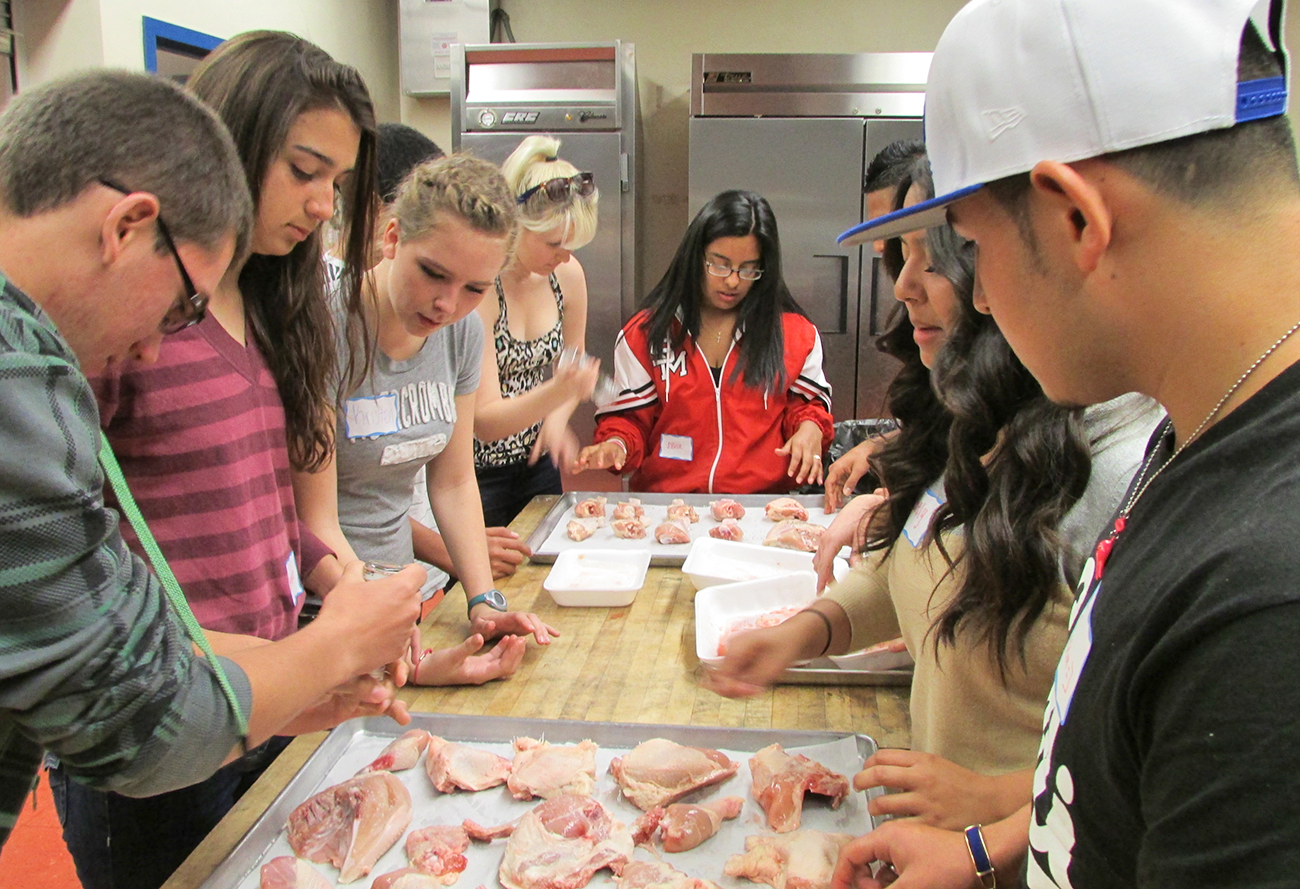
Adaptations
RELATIONSHIPS BRING CURRICULUM TO LIFE
Exploring REACH’s six core areas with two cohorts of students over a five-year period, we adjusted the type and frequency of assistance as we learned individual student strengths and weaknesses. For example, although we recruited students with similar grade point averages, we nevertheless found ourselves accommodating a very wide range of student academic ability, which required more curriculum customization than we initially expected.
Another adaptation turned out to be central to our effectiveness. We expected to rely more on outside vendors than our own staff for skills instruction, but soon saw that our personal relationships with students increased their engagement in the curriculum. Bringing in high quality partners was essential to the program’s success, though, so we adapted by integrating our own staff into workshops and excursions led by third parties. It was especially helpful that our staff members shared the experiences and were able to reinforce learning, because changing student behaviors in areas such as financial literacy required a lot of repetition.
With the wilderness as our primary classroom, we also learned – with some difficulty – how to make our excursions enjoyable and educational for less physically robust students.
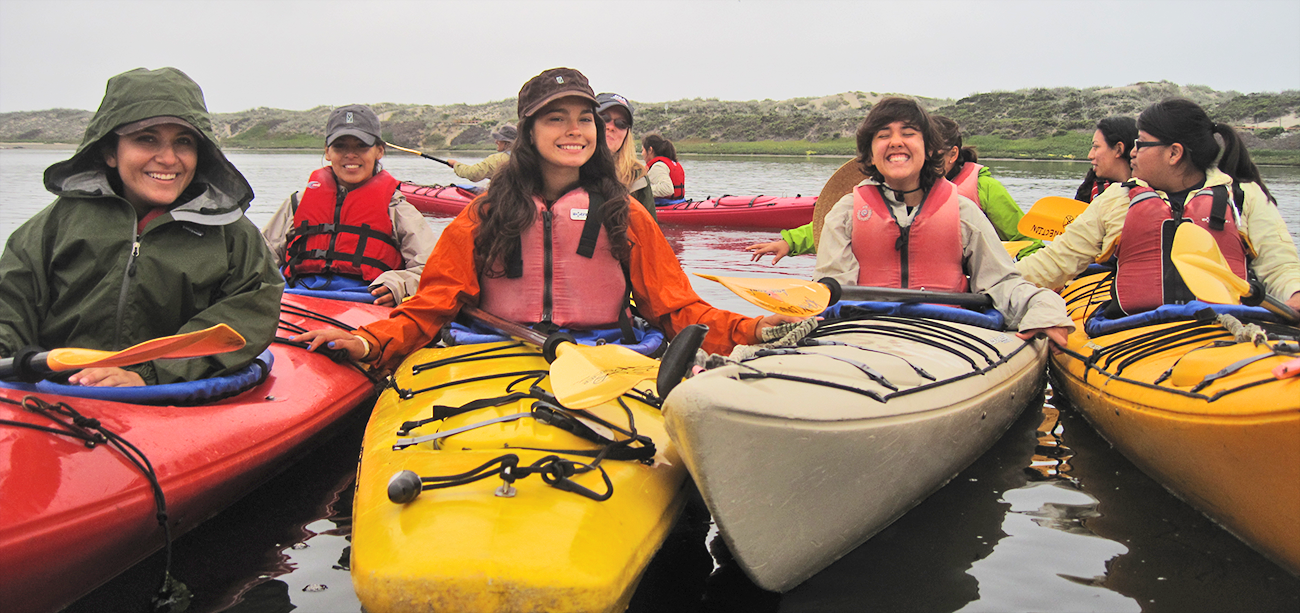
Impact
THRIVING IN COLLEGE AND READY FOR MORE
Among students in the REACH 2012 cohort, 41% attended 4-year colleges and another 56% attended two-year colleges, with 26% of the latter scheduled to transfer to 4-year institutions. Overall, 97% of our students were enrolled in postsecondary education as we concluded the first two cohorts. 97% also reported improved understanding of money management; 100% feel more comfortable and confident in a wilderness environment; all are aware of how food is produced and are now more likely to select healthy foods; 90% feel more connected to their community and 100% believe they have something to contribute to their community; 100% of students report that “Participating in REACH has helped me have purpose in my life.”
Moreover, all students reported they were better at managing risk because of their time with REACH. Considering how the late-stage development of impulse control in young people can affect relationships, education, and financial security, an improvement in balancing risk and reward should have outsized impact throughout these students’ lives.
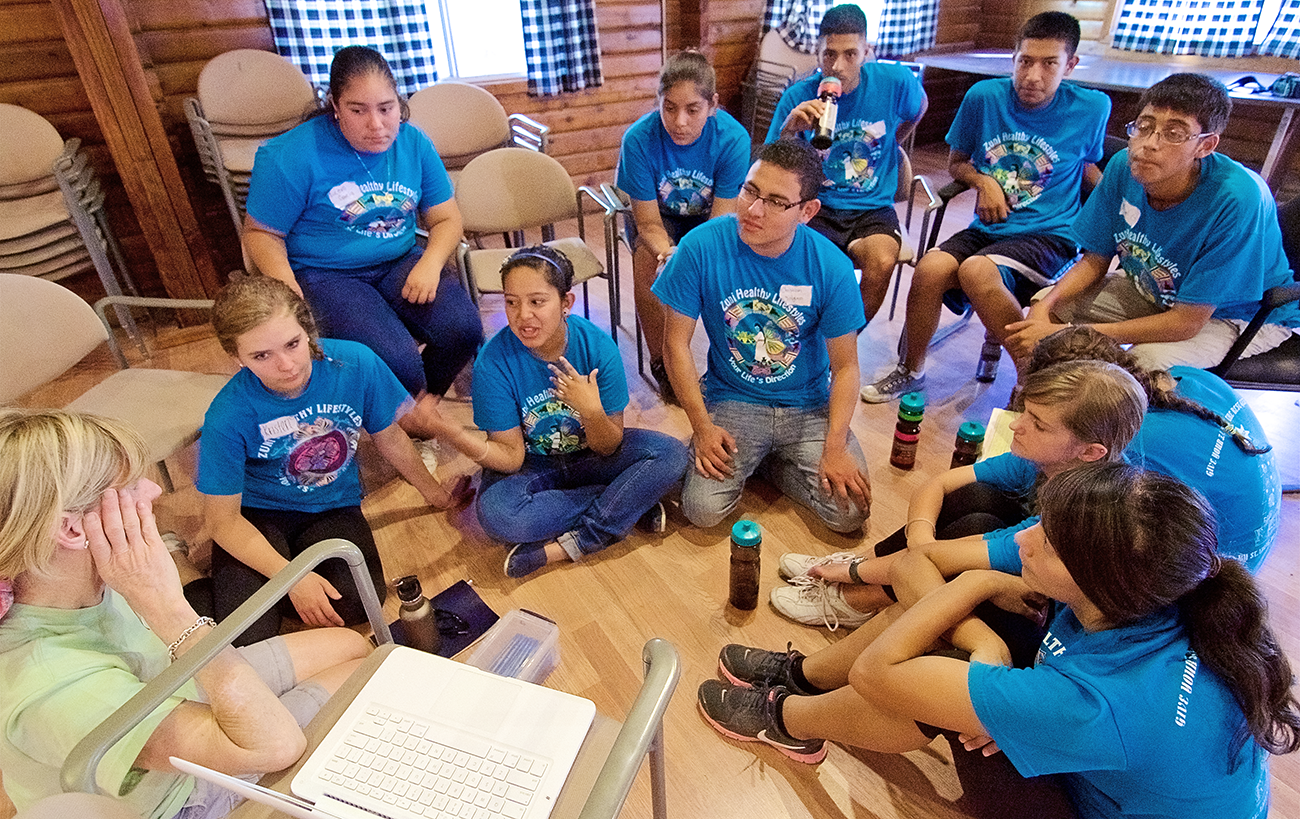
Continuity
FRESHLY MINTED MENTORS IN THE COMMUNITY
Unlike other programs launched by the Orfalea Foundation, REACH is less a vehicle for systemic change than an ongoing exploration of the timing of mentorship. After the program concludes, our students bring to their communities everything they have learned about teamwork, leadership, problem-solving, and lifelong learning. We hope that other organizations and philanthropists will build on this success and continue to experiment with long-term mentorship during the transition to adulthood. Based on what we learned from these first two cohorts, as of 2018 REACH will compress its curriculum to 2.5 years, centered on the summer between high school and college. We look forward to reporting on our progress.




